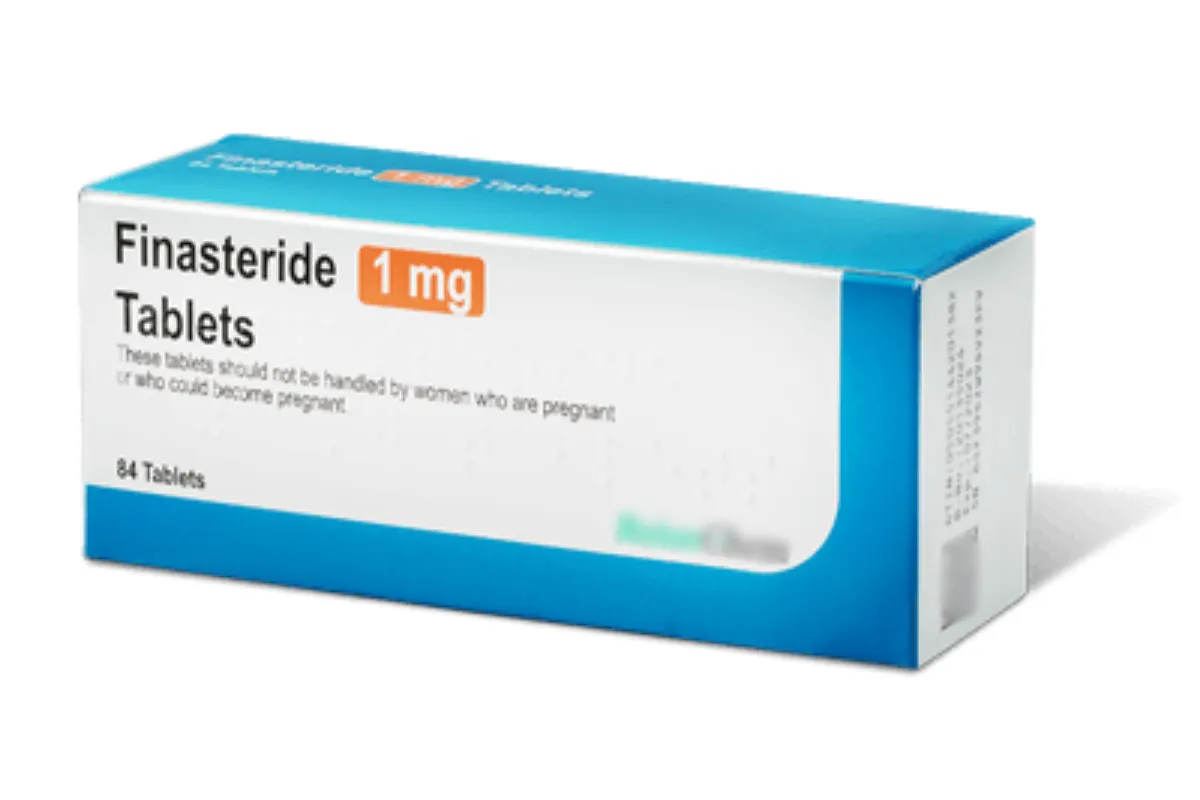
Does Finasteride Cause Erectile Dysfunction?
Finasteride can contribute to erectile dysfunction in a small share of users, and the risk is usually low. Clinical trials and large studies report sexual side effects in a few percent or less, often improving with time or after stopping. Rarely, symptoms may persist. A clinician can help you weigh benefits, risks, and alternatives.
What Finasteride Does In The Body
Finasteride is a 5‑alpha‑reductase inhibitor. It lowers dihydrotestosterone (DHT) by blocking the enzyme that converts testosterone into DHT.
Lower DHT can slow androgenetic alopecia (male pattern hair loss) and can also shrink an enlarged prostate in benign prostatic hyperplasia (BPH).

Can Finasteride Cause Erectile Dysfunction?
Yes, erectile dysfunction (ED) is a recognized potential side effect. The key question is how often it happens and whether it lasts.
Across randomized trials and observational studies, ED is reported in a minority of users. Many men have no sexual side effects at all, and some who do notice symptoms improve over time.
How Common Is ED With Finasteride?
What Trials And Reviews Suggest
In hair‑loss studies using finasteride 1 mg, drug‑related sexual side effects have often been reported at under 2% in longer follow‑up, with rates decreasing over time and becoming similar to placebo in some analyses.
Other reviews report slightly higher ranges for sexual side effects (including ED, reduced libido, and ejaculatory changes), typically within a few percent. Differences come from study design, how symptoms are measured, and whether men have other ED risk factors.
What Regulators Warn About
Regulatory agencies and drug labels also acknowledge that sexual side effects can occur and may persist after discontinuation in some cases.
Because ED is common in the general population, especially with age, teasing out cause and effect can be tricky. That’s why your baseline health and medications matter when interpreting symptoms.

Why Might Finasteride Affect Erectile Function?
The best‑supported explanation is hormonal signaling. DHT plays a role in androgen activity in tissues involved in sexual function, and lowering DHT may affect libido or erectile quality for some men.
Psychological factors can also contribute. Worry about side effects can raise performance anxiety, which can worsen erections even when hormones are stable.
Researchers have also explored neurosteroid pathways and neurotransmitter changes, but the science is still evolving and not definitive.
What About Persistent Symptoms And Post‑Finasteride Syndrome?
Some men report sexual symptoms that continue for months after stopping finasteride, often grouped under the term “post‑finasteride syndrome” (PFS).
The medical community agrees that persistent symptoms are reported, but there is ongoing debate about how often they occur, which men are most susceptible, and the underlying mechanism.
If you develop lasting symptoms, treat it like any other persistent sexual health issue: get evaluated, rule out common causes, and avoid self‑treating with unverified supplements or extreme protocols.

Who May Be At Higher Risk?
Men with pre‑existing erectile issues, cardiovascular risk factors (such as smoking, diabetes, high blood pressure), depression or anxiety, or low testosterone may notice symptoms more readily.
Some evidence suggests that longer exposure may increase the chance of reporting sexual side effects, though most users still do not experience ED.
Dose and formulation matter. Oral finasteride is well‑studied, while compounded topical finasteride varies by formulation and has prompted safety discussions in recent years.

What To Do If You Notice ED While Taking Finasteride
Step 1: Don’t Guess—Track The Pattern
Write down when symptoms started, whether they are consistent or intermittent, and any recent changes in stress, sleep, alcohol intake, medications, or relationship factors.
This context helps a clinician separate a medication effect from common ED contributors.
Step 2: Talk To Your Prescriber
Your prescriber can review dose, timing, and alternatives. Do not change or stop prescription medication on your own if it was prescribed for prostate symptoms.
If finasteride is being used for hair loss, your clinician may discuss a trial pause, switching approaches, or treating ED directly, depending on your goals and medical history.
Step 3: Address Modifiable Factors
Exercise, weight management, limiting alcohol, quitting smoking, and improving sleep can meaningfully improve erectile function in many men.
If anxiety is part of the picture, short‑term counseling or therapy can be as practical as any medication change.
Alternatives If Finasteride Isn’t A Fit
For male pattern hair loss, topical minoxidil is a common non‑hormonal option. Some men combine treatments under medical guidance.
Procedural options such as hair transplantation can be appropriate for certain patterns of loss and expectations.
Low‑level laser therapy, platelet‑rich plasma (PRP), and other interventions have mixed evidence. If you’re considering them, focus on clinics that present realistic outcomes and published protocols.
When To Seek Medical Help Urgently
Seek prompt care if ED appears alongside chest pain, shortness of breath, new severe headaches, neurological symptoms, or signs of depression with suicidal thoughts.
If you feel a sudden, significant change in mood after starting any medication, contact a clinician right away.
Frequently Asked Questions
Does finasteride‑related ED go away after stopping?
For many men, sexual side effects improve after discontinuation or even with continued use. A minority report persistent symptoms. If ED continues, a full evaluation is worthwhile because common causes—vascular health, hormones, stress, medications—often overlap.
Is ED more common with finasteride for hair loss or for prostate treatment?
Finasteride is used at different doses for different conditions. Side‑effect rates vary across studies and populations, and older men treated for BPH may have more baseline ED risk factors.
Can topical finasteride cause ED?
Topical formulations can still be absorbed systemically. Evidence is less consistent because compounded products vary in strength and vehicle. Discuss topical use with a qualified clinician and report any sexual or mood symptoms.
Medical note: This information is educational and does not replace personalized medical advice. A licensed clinician can help you weigh risks and choose the safest plan for your situation.




